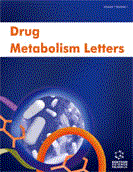Abstract
Imiloxan is an alpha2 adrenoceptor antagonist and was developed for depression in the 1980s. In Phase 1 clinical trials imiloxan dosing led to hypersensitivity reactions; the molecules development was discontinued. The present study revisits the in vitro metabolism of imiloxan using modern analytical methods. Human and rat liver microsomes convert imiloxan into a variety of metabolites many of which are unstable and or reactive. Imiloxan also yields high protein covalent binding in microsomal assays. Imiloxan is a useful test molecule for defining the relationship between liver covalent binding and idiosyncratic toxicity.
Keywords: Imiloxan, metabolism, mass spectrometry, reactive metabolite
 20
20














